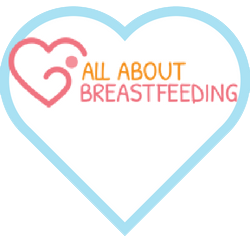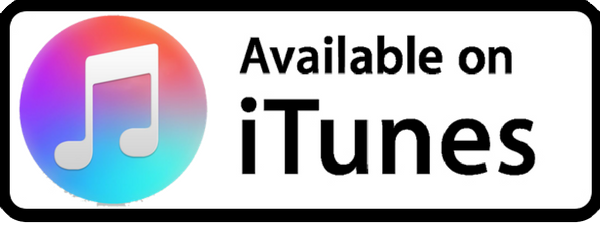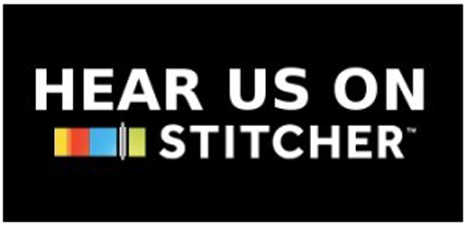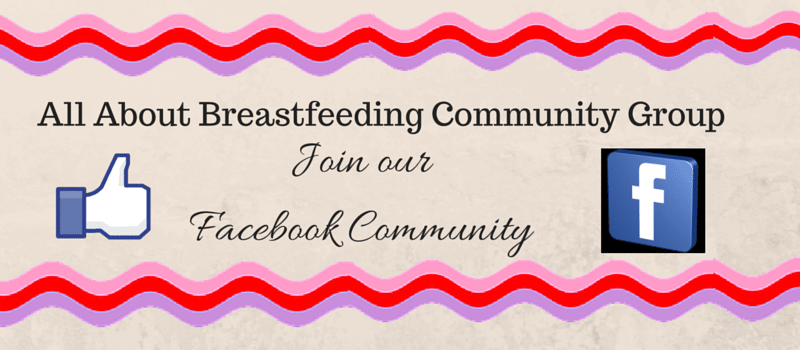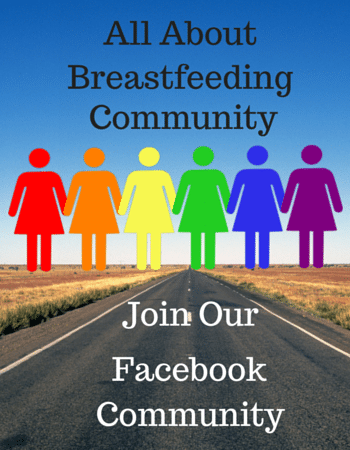
Today’s Podcast
Episode 415
I would say absolutely feed your baby your human milk because human milk has within in, virus fighting capacity, it has pathogenic fighting capacity. It is specific to your babies needs for health. You absolutely want to make sure that you are practicing precautions if you suspect you have Covid or you have an active case of Covid. You want to follow really good hygiene. You want to wear a mask when you are feeding your baby. The WHO, UNICEF and other organizations around the world and now finally the CDC has admitted that it should be a decision that breastfeeding is important for all babies, in spite of whether or not the parent has Covid or not, it is an important health fluid for babies. If the parent does have Covid, you just need to practice good hygiene in order to provide that milk to the baby.
Her Bio:
Laurel Wilson is a TEDx and international speaker, pregnancy and breastfeeding specialist, consultant, educator, and author. She is the co-author of two books, The Attachment Pregnancy and The Greatest Pregnancy Ever; original editor of The CAPPA Lactation Educator Manual; as well as a contributing author to Round the Circle: Doulas Talk About Themselves. Her passion is blending today’s recent scientific findings with the mind/body/spirit wisdom to help professionals and families realize the magnitude and importance of the perinatal period. Spending 17 years as Executive Director for Lactation Programs for the Childbirth and Postpartum Professionals Association formed the foundation of her inquiry into the science of human milk. She acted as a board director for the United States Breastfeeding Committee from 2016-2019 and currently serves as an advisor for InJoy Health and Kindred Media. Laurel has been joyfully married to her husband for nearly three decades and has two wonderful grown sons, whose difficult births led her on a path towards helping emerging families create positive experiences. She believes that the journey into parenthood is a life-changing rite of passage that should be deeply honored and celebrated.
Her Background:
Below is my 2 minute recap of our interview which was literally 3 years ago, almost to the day as it was April 24th 2017. I encourage you to listen to it and it is Episode #167
Her father was a primatologist and he instilled in her a love of primates. She spent a lot of her childhood studying chimpanzees and apes and fully expected to follow in her fathers footsteps. Life sometimes takes us in another direction, which is exactly what happened with Laurel. She fell in love, became a mother and through her experiences with pregnancy, birth breastfeeding and motherhood led Laurel to do the work she is currently doing. Laurel has accomplished so much in the 3 years since we last spoke with her. She is currently involved in advocacy and promotion of health through healthy childbirth and breastfeeding.
Since I have been so impressed with all that Laurel has done in the 3 years, I asked her to come back to the show and share with us and bless us with her knowledge of the long term benefits of human milk . Laurel is a well sought after speaker and she is an expert in many topics. Today, I am going to ask her to focus on the latest research in human milk and brain development and the long-term impact of skin to skin care and biological nurturing.
I asked Laurel to share with us some very specific amazing properties about human milk that makes us go – WOW! I learned so much as Laurel shared the following information with us about just how specific human milk is to each baby and how it is designed to help humans evolve into the niches that we have evolved in. In this next segment, Laurel talks about:
How human milk activates or inactivates certain genes. It does this by setting up a healthy microbiome in the human babies gut. One of the properties in human milk are oligosaccharides. When we look at these sugars, We now know that these sugars they are there for
- to feed the specific bacteria that lives in babies gut for the rest of their life
- to fight against pathogens. Act like these guards who stand at the doorway and make sure if something negative is trying to access the babies body they can actually change their shape and sweep those invaders out with the gut. They are pretty amazing.
HMO’s – the short term for – human milk oligosaccharides are really specific to each baby and based on things like -where in the world you live. and we think that’s because when you live in, let’s say you live in SA,
Let’s say you live in South Africa. You are going to be exposed to different types of pathogens than if you were living in Iceland. You would want your breastmilk to feed bacteria that would be really helpful for your baby’s gut to fight off pathogens in that particular locale. We have also learned that they are particular to not only where you live, but they have a specificity to your genetic line.
This is one example of an ingredient in human milk that we did not know a lot about. Only in the last half decade are we learning an abundance of information about HMO’s When you look at percentages between how many HMO’s are in human milk vs. bovine milk, you can see why they are so imperative to the health and persistence of our longevity as humans. They help our gut/brain connection communicate and are so important to us long term.
Her Ted Talk: Human Milk – a food that has helped evolve us.
In her talk, one of the topics she discussed was that It is because of human milk and its specificity that we have been able to survive and prosper in so many different environments around the world.
I brought up the concern that I have as an IBCLC, that sometimes parents tell us they feel guilty when we talk about the health benefits of human milk. Laurel explained to us that she focuses on this information in terms of sharing Global Health Information:
Laurel understands that Individual human beings have access to different support networks. Some live in food desert, some people are experiencing structural challenges, some are experiencing racism within their health care system. When she talks about how important human milk is in the long term, she is talking about why we should, as a global health system, be creating systems that make it easier & more supportable for every individual who wishes to human milk feed, be able to human milk feed.
Tell us about the long term consequences of human milk for our babies:Every mammal makes a very unique and specific type of milk to help their baby develop.Human beings are born relatively early, they are incredibly dependent on their parents.Our milk is design to promote an enormous amount of brain growth in that first couple of years. It is also a milk that is and designed to be fed very frequently.The babies niche is designed to be right next to its parents so it can access human milk as often as they need to. but its also enables that baby to be close to parents external microbiome because breast and chest feeding is not just milk. It is a whole actionable experience that changes how we develop. The reality is the whole act of breast and chest feeding that really changes development for our children. For example one of the things that happens when a lactating parent feeds baby is they both receive a rise in oxytocin.
When you look at the cycle of oxytocin in terms of our long term health it promotes our biological agenda.
When mother has rise, in oxytocin it helps her have a let down and milk delivery to baby. It also creates genetic changes within the brain that promote maternal care. Having the baby right there experiencing the oxytocin release and it tells the baby “your my person” and so it creates a bond between the two of them which is a really important aspect of how healthy children are long term, how bonded they feel to their familial parents, but it does so many more things. They are now finding that this optimal release of oxytocin between parent and child also helps children later on be more social characters. This helps them In being more social beings in their world and ultimately help them partner up eventually and complete the cycle.
Let’s talk about the miicrobiome – It is not just about the bacteria:
The microbiome that we are delivering through human milk which, is so unique between each couplet is not just bacteria, but almost as important as the bacteria that is being transmitted, is the fungus that are being transmitted in the milk. We know that there are these important fungal networks that have kept the living plant life all around the entire world growing and communicating. We are now finding these networks are just as important within the human body,and,there is a virome within the microbiome. So we are also transmitting viruses that work within each individual cell to protect each cell from bacterial invasion. This is unique to humans. You don’t want to get a virome from bovine and you don’t want to get a virome or fungal information from plant milk when you are in the critical 1000.
The critical 1000 –
The period from conception to first thousand days of life when all of our organ systems are developing. This is also When most of our genetic actions are either activating or inactiviating as is necessary for our health and we are populating our microbiome. This is such a critical time of human health and development and when we receive milk that has messaging not only for human beings but messaging from our specific family, from our specific environment, we are so much more healthy in the long term than when we are receiving that genetic information and virome information from a non-species specific source. There is no getting around this. There is food that is optimal and there is food that is not. When a human baby is receiving milk that is not human, we are receiving nourishment, but we are not receiving all of the information that our body needs for optimization over time.
Nutrition keeps us alive, but what we need is long term information to stay in communication with our bodies for the rest of our lives to maintain our health and that is what human milk does for us.
Tell us about the brain growth during the critical 1000 – How much the brain grows in the first 3 years, compared to the years 3- 18 as compared to the rest of our life.
About 2/3 of our brain grows in the critical 1000 days. During that time, it’s not only that our brain is growing in size, but our brain is growing in neuro-connections. Human milk creates the opportunity for the brain to have a really healthy Myelination. Part of this is because of the cholesterol which is in human milk, but is absent in artificial milk formula. Cholesterol helps to protect this myel in the brain. So not only do we see the development and the growth of the brain, but we are seeing those individual synapses, neurons, which are channels of communication starting to really develop within the babies brain. As the baby gets older, some of these prune away. It’s all about the niche. Depending on where you live around the world, there are going to be certain activities that are going to be more important as a human to keep you alive and thriving. So your brain is going to prune certain neurological connections and redevelop certain areas. This is one of the reasons that human milk is so important to the brain early on. It is because it creates the capacity for this growth later on when we fit into our niches. It helps to develop our intelligence in that manner.
Laurel also explains some very important information to us as she expands on the following topics:
What does every human milk feeding mean to your baby
How does Human milk protect us throughout our lifetime
Oxytocin’s impact on the mother and baby bond for the long term
Pearls of Wisdom regarding human milk feeding during a Pandemic:
I would say absolutely feed your baby your human milk because human milk has within in, virus fighting capacity, it has pathogenic fighting capacity. It is specific to your babies needs for health. You absolutely want to make sure that you are practicing precautions if you suspect you have Covid or you have an active case of Covid. You want to follow really good hygiene. You want to wear a mask when you are feeding your baby. The WHO, UNICEF and other organizations around the world and now finally the CDC has admitted that it should be a decision that breastfeeding is important for all babies, in spite of whether or not the parent has Covidor not, it is an important health fluid for babies. If the parent does have Covid, you just need to practice good hygiene in order to provide that milk to the baby.
If the parent is so sick that they cannot feed the baby or they are separated, in that event, the baby can still receive that milk through hand expression or pumping and someone else can feed the baby that milk.
All or nothing? Any amount of milk you can give your baby is great
Human milk feeding is actually one of the safest things you can do during an emergency because you don’t have to rely on other milk to feed your baby. Many families who may have been using infant formulas or who have transitioned to infant formulas will move back to relactation during times of emergency because we know that You know you can trust that your body will provide healthy milk for your baby. There are many great support resources you can find. Laurel has resources on her website Motherjourney.com During the COVID-19 Pandemic, many parents who have been using infant formulas are looking to relactation.
Laurel’s contact information:
Motherjourney.com has a whole page that is updated daily and you can find a lot of resources there also. You can sign up for her newsletter too.
IG is motherjourneylaurelwilson
Your Online Breastfeeding Class
Learn how to breastfeed – Be comfortable. Be confident.
The learning continues well beyond the average breastfeeding basics class that is 60-90 minutes. In this class, we have over 15 hours of audio lessons, combined with many hours of videos to help support what you are learning. We cover breastfeeding and medication safety, what to do if your baby does not latch on, common breastfeeding challenges, tongue tie, premature babies, building a good supply, returning to work and pumping. Take a look at the list below and follow the link to the class page so you can see more specifics of what is covered. I want to ensure that we got you covered and that you have great support well beyond the newborn days.
- Using your pregnancy time to prepare for breastfeeding
- Tips on how to prepare your home for a newborn
- Specific details about the first 24 hours after birth.
- Exactly what to expect the first two weeks after birth
- What can you do if your baby is not latching on
- Common and not so common breastfeeding challenges
- What you can expect over the next few months
- Returning to work as a breastfeeding/pumping mom
- Pumping and storing your milk
- When to begin pumping and building your freezer stash
- How to make a smooth transition to postpartum life
- Lessons dedicated to partners and breastfeeding knowledge.
- Breastfeeding and the 1 year old
- Breastfeeding the toddler and beyond
- Tandem nursing
- Breastfeeding through a pregnancy
- Medication and mother’s milk
- Weaning
Once you register for the class, you have immediate access to:
- Audio Lessons
- Videos
- Educational handouts
- Helpful checklists
- Our “members only” group
- Weekly group LIVE Q&A sessions
Gain confidence in breastfeeding.
Expert advice from Lori J. Isenstadt, IBCLC who has over 25 years of experience in maternal health and lactation. I will help you navigate the ins and outs of breastfeeding.
Listen anywhere and anytime. Imagine not having to sit in a classroom or stare at a screen. You can learn all about breastfeeding while going for a walk, driving to work or running errands, traveling on a plane, train or bus. Because you can download the audios, learning is easy and convenient. Get ready to learn anytime whenever it’s convenient for you and your partner. You can be cooking dinner together and listening to the class. Perhaps relaxing together in the evening in your comfy clothes. You can learn together. Easy access to all class materials. Your class never expires. You’ll be able to listen and download the materials at your convenience.
You are not alone!
Once you are a student in the breastfeeding class, you have regular access to ongoing support for the whole time you are breastfeeding. You can have your questions answered by Lori J. Isenstadt, IBCLC, in our private group as well as our weekly live Q & A sessions. Just check out the Bonuses below to see how I provide you with ongoing support..
Exclusive Bonus #1
Immediate access to a private group for class students only. I will be answering your questions 5 days a week.
Exclusive Bonus #2
Invitation to join our weekly Q & A session with Lori and other students.
Exclusive Bonus #3
Need additional help? *25% discount off a private consult – for students only.
*If you are in the Phoenix metro area. use this link to schedule your Office or Home lactation consult.
*If you are out of the area, use this link to schedule a Skype call
Do you have a question about the class before you purchase? Send it to – aabreastfeeding@hotmail.com
 Register for the Breastfeeding class
Register for the Breastfeeding class
http://www.aabreastfeeding.com/audioclass
Additional ways to connect with me:
Like us on Facebook HERE:
http://bit.ly/2dNPlsC
Follow us on Twitter HERE:
@breastfeedingaz
http://bit.ly/2BfEIJ2
Follow us on Pinterest HERE:
https://www.pinterest.com/lorijisenstadt
Subscribe on iTunes the All About Breastfeeding show HERE:
https://apple.co/2FJGwsV
Lori J. Isenstadt, IBCLC
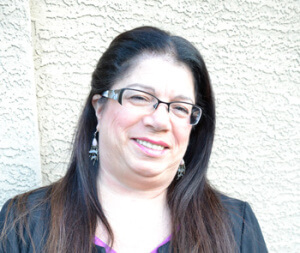 Lori Jill Isenstadt, IBCLC is a huge breastfeeding supporter. She has spent much of her adult life working in the maternal health field. Once she became turned on to birth and became a childbirth educator, there was no stopping her love of working with families during their childbearing years. Lori became a Birth doula and a Postpartum doula and soon became a lactation consultant. She has been helping moms and babies with breastfeeding for over 25 years. Lori founded her private practice, All About Breastfeeding where she meets with moms one on one to help solve their breastfeeding challenges. She is an international speaker, book author and the host of the popular itunes podcast, All About Breastfeeding, the place where the girls hang out. You can reach Lori by email at: aabreastfeeding@hotmail.com or contact her via her website: allaboutbreastfeeding.biz/contact
Lori Jill Isenstadt, IBCLC is a huge breastfeeding supporter. She has spent much of her adult life working in the maternal health field. Once she became turned on to birth and became a childbirth educator, there was no stopping her love of working with families during their childbearing years. Lori became a Birth doula and a Postpartum doula and soon became a lactation consultant. She has been helping moms and babies with breastfeeding for over 25 years. Lori founded her private practice, All About Breastfeeding where she meets with moms one on one to help solve their breastfeeding challenges. She is an international speaker, book author and the host of the popular itunes podcast, All About Breastfeeding, the place where the girls hang out. You can reach Lori by email at: aabreastfeeding@hotmail.com or contact her via her website: allaboutbreastfeeding.biz/contact
your email address will not be published
